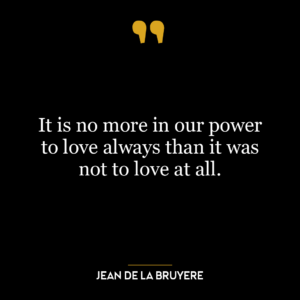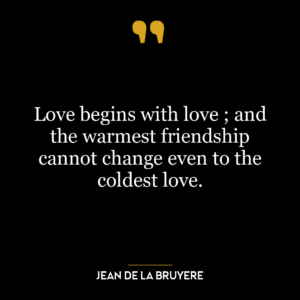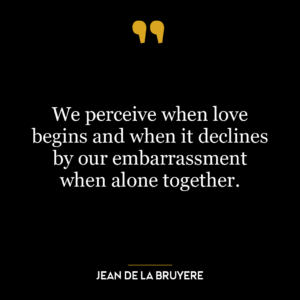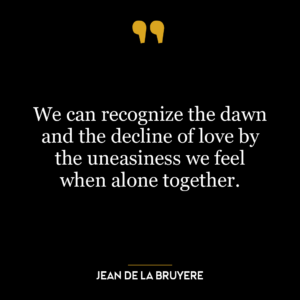This quote speaks to the intensity and purity of first love, likening it to both idolatry and wild passion. Idolatry refers to the act of worshiping or adoring someone or something as if they were a god. This is often how we perceive our first love – as something divine, perfect, and untouchable. We place them on a pedestal, often overlooking their flaws and seeing only their virtues. This is combined with wild passion – a fervent, almost uncontrollable emotion that can consume us. It’s the kind of passion that can make everything else seem insignificant in comparison.
The quote suggests that first love is a unique experience that is not replicated in subsequent relationships. It’s a powerful and intense feeling that can shape us, and that we often remember with a sense of nostalgia and longing.
Applying this idea to today’s world or personal development, it might suggest the importance of cherishing and learning from our first experiences of love, while also recognizing that they may not be sustainable or realistic in the long term. Idolizing someone can lead to disappointment when they fail to live up to our idealized image of them, and wild passion can burn out quickly if it’s not tempered with deeper understanding and respect.
It also highlights the importance of balance in love and relationships. While the intensity of first love can be exhilarating, it’s also important to develop a more mature and realistic understanding of love over time. This involves recognizing and accepting the flaws in our partners, and developing a more balanced and sustainable form of passion.
In personal development, this quote can serve as a reminder to approach new experiences with a sense of passion and reverence, but also with a level of realism and understanding. It encourages us to fully immerse ourselves in our experiences, but also to learn and grow from them, rather than becoming stuck in a cycle of idolatry and wild passion.
















